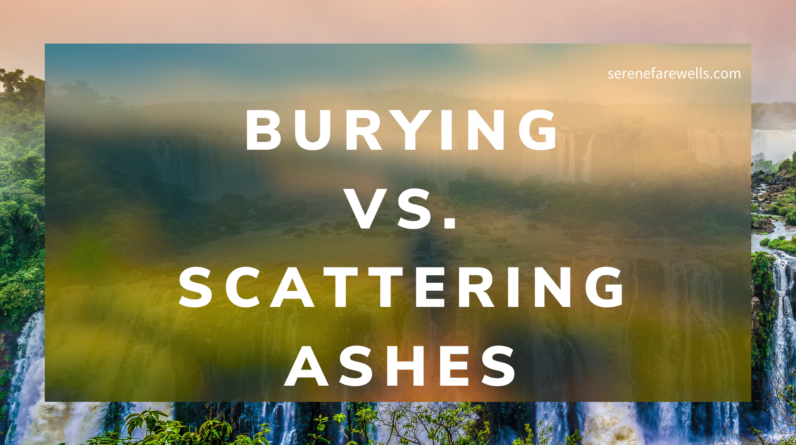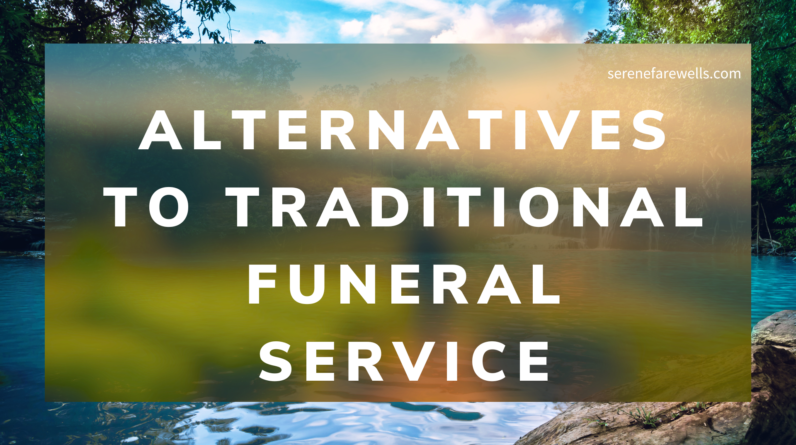
Funeral costs can reach $8,300 or more for traditional burial services, placing a heavy burden on families already dealing with grief. If you’re facing limited financial resources while planning a funeral, you’re not alone. Understanding your options can help you honor your loved one’s memory without depleting your savings or going into debt.
This guide explores practical, affordable funeral alternatives that maintain dignity while reducing costs. From direct cremation to body donation, you’ll learn specific strategies and exact costs to help you make informed decisions.
Why Pre-Planning Saves Money
Pre-planning your funeral or a loved one’s funeral arrangements can save thousands of dollars and spare your family difficult decisions during an emotional time. When you plan ahead, you can compare prices, negotiate payment plans, and make thoughtful choices without the pressure of immediate deadlines.
Pre-planning also lets you lock in current prices. Funeral costs typically increase 3 to 4 percent annually, so purchasing services now protects against future price increases. You’ll have time to research all available options, apply for financial assistance programs, and explore alternatives that align with your values and budget.
Understanding Burial and Cremation Costs
Traditional Burial Expenses
Traditional burial remains the most expensive funeral option. The median cost in 2025 is $8,300 for a funeral with viewing and burial, or $9,995 if you add a burial vault. These costs include several components: the casket ($2,000 to $10,000), burial plot ($1,000 to $4,000), vault ($1,000 to $3,000), embalming ($500 to $1,000), grave preparation ($1,000 to $2,500), and headstone ($1,000 to $3,000).
Funeral home service fees add another $1,500 to $3,000, covering staff time, facility use, transportation, and paperwork. Cemetery costs vary significantly by location, with metropolitan areas charging substantially more than rural cemeteries.
Cremation Cost Breakdown
Cremation offers a more affordable alternative. The median cost for a funeral with cremation is $6,280, including a viewing and memorial service. Direct cremation, the most economical option, costs between $1,000 and $3,200, with a national average of $2,195.
Direct cremation eliminates expenses for embalming, visitation, casket rental, and formal funeral services. The cremation process itself typically costs $300 to $700. You’ll still need to purchase an urn ($50 to $1,000 or more, depending on style), but even premium cremation options rarely approach the total cost of traditional burial.
This price difference explains why cremation rates have climbed to 63 percent in 2025 and are projected to reach 82 percent by 2045.
Choosing Between Burial and Cremation
Your decision should balance personal preferences, religious beliefs, and financial reality. Some religions forbid or discourage cremation, including certain branches of Judaism and Islam. Others have no restrictions.
Consider these practical factors: burial provides a permanent location for family visits and memorialization, while cremation offers flexibility in timing memorial services and storing or scattering remains. Burial requires ongoing cemetery maintenance, while cremated remains can be kept at home, scattered, or divided among family members.
Direct Burial: A Simple, Affordable Option
Direct burial provides a straightforward alternative to traditional funeral services. The deceased is buried shortly after death without embalming, visitation, or a formal funeral ceremony. This option costs an average of $5,138, significantly less than traditional burial.
You can still gather for a graveside service or hold a memorial at another time and location. This flexibility allows you to plan a meaningful tribute without the pressure and expense of immediate arrangements.
Direct burial works well for families who prefer simplicity or need to minimize costs while maintaining the tradition of burial. Check with local cemeteries about their requirements, as some may require a burial container even without a vault.
Direct Cremation: Maximum Affordability
Direct cremation eliminates nearly all traditional funeral expenses. After death, the body is cremated without embalming, viewing, or ceremony. The cremated remains are returned to your family in a simple container, typically within a few days.
Costs range from $1,000 to $3,200, making this the most affordable disposition option. You pay only for basic services, transportation, the cremation itself, and necessary permits.
Many families choose direct cremation and then plan a memorial service weeks or months later, allowing time for extended family to travel and participate. You can hold this service anywhere meaningful: a home, park, community center, or place of worship. This approach provides emotional closure without the financial pressure of immediate arrangements.
Green Burials: Eco-Friendly and Economical
Green burials minimize environmental impact while typically costing less than traditional burial. The average green burial costs approximately $2,250, compared to $8,300 for conventional burial. This approach eliminates embalming chemicals, metal caskets, and concrete vaults.
What Makes a Burial Green
Green burial returns the body to the earth naturally. The deceased is placed in a biodegradable container or wrapped in a natural fiber shroud. Burial occurs in designated natural burial grounds or conservation areas that maintain the local ecosystem.
These sites typically prohibit embalming fluids, non-biodegradable materials, and elaborate markers. Instead, they may allow natural stone markers or GPS coordinates for locating graves.
Biodegradable Burial Containers
Green caskets cost between $550 and $2,300, less than traditional caskets that range from $1,300 to over $4,000. Materials include untreated pine or cedar, bamboo, willow, seagrass, cardboard, wicker, and cotton.
These containers decompose naturally, contain no metal hardware, and use no chemical varnishes or adhesives. Many can be personalized with non-toxic paints, pressed flowers, or natural decorations.
Burial shrouds offer an even simpler option. Made from unbleached cotton or bamboo fabric, shrouds are paired with woven willow carriers with handles for easier transport. Families can adorn shrouded bodies with wildflowers or tree branches for a personal touch.
Finding Natural Burial Grounds
Not all cemeteries accept green burials. The Green Burial Council maintains a directory of certified green burial sites throughout the United States. Contact these locations directly to understand their specific requirements and costs.
Some conventional cemeteries now offer green burial sections. Ask about policies regarding biodegradable containers, embalming requirements, and marker restrictions.
Home Funerals: Taking Control of Arrangements
Home funerals allow families to care for their deceased loved ones personally. You can wash and dress the body, create a homemade casket or shroud, and hold services in your home. This approach reduces costs by eliminating many professional services.
Benefits and Practical Considerations
Home funerals provide intimate, meaningful involvement in the funeral process. Many families find this hands-on care brings closure and honors their loved one’s life in a deeply personal way.
However, home funerals require careful planning and compliance with state and local regulations. You’ll need to understand requirements for body preservation (refrigeration or dry ice), death certificate filing, and transportation.
Legal Requirements by State
Regulations vary significantly. Some states freely allow families to handle funeral arrangements, while others require licensed funeral directors for certain tasks. Research your state’s specific laws regarding body handling, timeframes for disposition, and required permits.
Contact your local health department or county clerk’s office for guidance. Most states require filing a death certificate within a specific timeframe, obtaining a burial or cremation permit, and ensuring proper preservation if burial or cremation won’t occur within 24 to 48 hours.
Body Donation: Contributing to Medical Science
Donating your body to medical research provides free disposition while advancing medicine. Accredited body donation organizations cover all costs, including transportation, cremation, death certificate filing, and returning cremated remains to your family.
How Body Donation Works
After death, you or your designated representative contacts the body donation organization. They conduct a brief medical screening to determine if the donation meets current research needs. Not all bodies can be accepted, so having a backup plan is essential.
If accepted, the organization arranges transportation to their facility. Medical schools, teaching hospitals, and research institutions use donated bodies for anatomical training, surgical technique development, medical device testing, and disease research. After 3 to 12 weeks, cremated remains are returned to your family or respectfully interred.
Eligibility and Registration
Most people qualify for body donation regardless of age or medical history. However, certain conditions may disqualify donors: communicable diseases like HIV, hepatitis, or tuberculosis; severe obesity or edema; significant body trauma; or advanced decomposition.
Register while you’re alive and mentally competent. Reputable organizations include Science Care, MedCure, United Tissue Network, and university medical school programs. Look for accreditation from the American Association of Tissue Banks to ensure ethical practices.
You may still be responsible for medical examiner fees and additional death certificate copies, typically totaling a few hundred dollars. However, these costs are minimal compared to traditional funeral expenses.
Important Limitations
Body donation organizations can decline acceptance at time of death for any reason. If they cannot accept the donation, your family will need to arrange alternative disposition quickly. Always maintain a backup plan, such as direct cremation, and inform family members about both options.
Financial Assistance Programs
Several programs provide limited financial help with funeral expenses.
Social Security Death Benefit
Social Security provides a one-time death benefit of $255 to eligible survivors. This amount has remained unchanged since 1954 and covers only a tiny fraction of funeral costs.
To qualify, the deceased must have worked in jobs covered by Social Security. The benefit goes to a surviving spouse who lived with the deceased or was receiving Social Security benefits on the deceased’s record. If no eligible spouse exists, a dependent child under age 18 (or under 19 if still in high school) may qualify.
Apply within two years of the death date by contacting Social Security at 800-772-1213 or visiting your local office. Most funeral homes report deaths to Social Security, but you still need to apply separately for the benefit.
While a bill was introduced in 2024 to increase this benefit to $2,900, it has not passed into law as of late 2024.
State Medicaid Programs
Only four states offer Medicaid-related funeral assistance: Colorado ($1,500), Indiana ($1,200 for funeral expenses plus $800 for cemetery costs), Wisconsin (up to $1,500), and Wyoming (up to $500). Pennsylvania offers up to $750 for eligible individuals.
These programs require demonstrating financial need and exhausting other available resources. Eligibility typically requires that the deceased was a Medicaid recipient or meets similar low-income criteria.
Contact your state’s Department of Human Services or local county assistance office to learn about available programs. Even in states without formal Medicaid funeral assistance, county or city programs may provide limited burial support for indigent residents.
Veterans Benefits
The Department of Veterans Affairs provides burial benefits for eligible veterans. Benefits vary based on whether death resulted from service-related causes and when the injury or condition occurred.
For service-related deaths after September 11, 2001, the VA typically contributes $2,000 toward burial services. For service-related deaths before September 11, 2001, the contribution is $1,500. For veterans who die while on active duty, the VA covers most funeral costs including transportation, burial or cremation, and a casket or urn.
Contact the VA at 800-827-1000 or visit the nearest regional office to apply for benefits.
Charitable Organizations
Numerous charitable organizations provide funeral assistance grants or low-interest loans to families in need. These organizations typically focus on specific communities, religions, or circumstances.
Research local community foundations, religious organizations, and national charities that offer funeral assistance. Verify any organization’s legitimacy before providing personal information or accepting services.
Strategies for Keeping Funeral Costs Down
Compare Multiple Funeral Homes
Federal law requires funeral homes to provide detailed price information over the phone and in writing. Contact at least three to five funeral homes and request their General Price List, which itemizes all services and products.
Compare not just total costs but individual item prices. Some funeral homes charge significantly more for basic services, while others mark up merchandise like caskets and urns.
Understanding Your Consumer Rights
The Federal Trade Commission’s Funeral Rule protects your rights as a consumer. Funeral homes must allow you to purchase only the services you want, cannot require embalming unless legally required, must accept caskets purchased elsewhere, and must provide written price lists before showing you any products.
If a funeral home pressures you to purchase unnecessary services or refuses to comply with the Funeral Rule, contact the FTC and consider using a different provider.
Purchase Alternative Merchandise
You’re not required to buy caskets, urns, or other merchandise from funeral homes. Online retailers often sell these items at 50 to 70 percent less than funeral home prices. Federal law requires funeral homes to accept caskets purchased elsewhere without charging handling fees (though they may charge a reasonable fee for urns).
Simplify Services
Each service component adds cost. Consider which elements truly matter to you and your family. A memorial service without the body present costs significantly less than a traditional viewing and funeral. Limiting the number of attendees, choosing off-peak days and times, or holding services at home or in a park rather than a funeral home chapel can reduce expenses.
Negotiate Payment Plans
Many funeral homes offer payment plans or financing options. Discuss your budget constraints openly with funeral directors, who may suggest lower-cost alternatives or work with you on payment arrangements.
Some funeral homes offer package deals that bundle services at a discounted rate. Compare these packages carefully to ensure they include only what you actually want.
Consider Timing
If immediate disposition isn’t required by your religious tradition, you have flexibility in timing. This allows you to compare options thoroughly, apply for financial assistance, and avoid rush charges that some funeral homes impose for services arranged within 24 hours.
Making Informed Decisions
Funeral planning should reflect both your values and financial reality. Start by determining your budget, then explore options that fit within it. Remember that the most expensive funeral doesn’t necessarily provide the most meaningful tribute.
Discuss your wishes with family members now, before a crisis occurs. This conversation prevents misunderstandings and ensures everyone understands your preferences and financial constraints.
Document your decisions in writing. Include specific instructions about disposition preferences, service desires, and budget limitations. Store this information where family members can easily access it.
Planning an affordable funeral requires research, comparison, and sometimes difficult conversations. But taking control of these decisions now protects your family from financial hardship and ensures your final arrangements reflect what truly matters to you.






